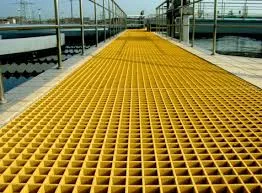
-
 Afrikaans
Afrikaans -
 Albanian
Albanian -
 Amharic
Amharic -
 Arabic
Arabic -
 Armenian
Armenian -
 Azerbaijani
Azerbaijani -
 Basque
Basque -
 Belarusian
Belarusian -
 Bengali
Bengali -
 Bosnian
Bosnian -
 Bulgarian
Bulgarian -
 Catalan
Catalan -
 Cebuano
Cebuano -
 China
China -
 China (Taiwan)
China (Taiwan) -
 Corsican
Corsican -
 Croatian
Croatian -
 Czech
Czech -
 Danish
Danish -
 Dutch
Dutch -
 English
English -
 Esperanto
Esperanto -
 Estonian
Estonian -
 Finnish
Finnish -
 French
French -
 Frisian
Frisian -
 Galician
Galician -
 Georgian
Georgian -
 German
German -
 Greek
Greek -
 Gujarati
Gujarati -
 Haitian Creole
Haitian Creole -
 hausa
hausa -
 hawaiian
hawaiian -
 Hebrew
Hebrew -
 Hindi
Hindi -
 Miao
Miao -
 Hungarian
Hungarian -
 Icelandic
Icelandic -
 igbo
igbo -
 Indonesian
Indonesian -
 irish
irish -
 Italian
Italian -
 Japanese
Japanese -
 Javanese
Javanese -
 Kannada
Kannada -
 kazakh
kazakh -
 Khmer
Khmer -
 Rwandese
Rwandese -
 Korean
Korean -
 Kurdish
Kurdish -
 Kyrgyz
Kyrgyz -
 Lao
Lao -
 Latin
Latin -
 Latvian
Latvian -
 Lithuanian
Lithuanian -
 Luxembourgish
Luxembourgish -
 Macedonian
Macedonian -
 Malgashi
Malgashi -
 Malay
Malay -
 Malayalam
Malayalam -
 Maltese
Maltese -
 Maori
Maori -
 Marathi
Marathi -
 Mongolian
Mongolian -
 Myanmar
Myanmar -
 Nepali
Nepali -
 Norwegian
Norwegian -
 Norwegian
Norwegian -
 Occitan
Occitan -
 Pashto
Pashto -
 Persian
Persian -
 Polish
Polish -
 Portuguese
Portuguese -
 Punjabi
Punjabi -
 Romanian
Romanian -
 Russian
Russian -
 Samoan
Samoan -
 Scottish Gaelic
Scottish Gaelic -
 Serbian
Serbian -
 Sesotho
Sesotho -
 Shona
Shona -
 Sindhi
Sindhi -
 Sinhala
Sinhala -
 Slovak
Slovak -
 Slovenian
Slovenian -
 Somali
Somali -
 Spanish
Spanish -
 Sundanese
Sundanese -
 Swahili
Swahili -
 Swedish
Swedish -
 Tagalog
Tagalog -
 Tajik
Tajik -
 Tamil
Tamil -
 Tatar
Tatar -
 Telugu
Telugu -
 Thai
Thai -
 Turkish
Turkish -
 Turkmen
Turkmen -
 Ukrainian
Ukrainian -
 Urdu
Urdu -
 Uighur
Uighur -
 Uzbek
Uzbek -
 Vietnamese
Vietnamese -
 Welsh
Welsh -
 Bantu
Bantu -
 Yiddish
Yiddish -
 Yoruba
Yoruba -
 Zulu
Zulu
fiber pipe
The Advantages of Fiber Pipe Technology
In recent years, fiber pipe technology has rapidly gained traction as an innovative solution for various industries, including telecommunications, oil and gas, and civil engineering. As we delve into the features, benefits, and applications of fiber pipes, it becomes evident why this technology is revolutionizing the way we approach piping systems.
What are Fiber Pipes?
Fiber pipes are composite materials that incorporate optical fibers within a pipe structure. These pipes harness the strength and lightweight properties of fibers, making them a superior choice for both transporting fluids and transmitting data. With advancements in materials science, manufacturers have developed robust and durable fiber pipes that can withstand harsh environmental conditions while delivering exceptional performance.
Strength and Durability
One of the most significant advantages of fiber pipe technology is its strength-to-weight ratio. Unlike traditional metal pipes, fiber pipes are lightweight yet extremely strong, which allows for easier installation and transportation. This strength ensures that they can endure high pressure and temperature variations. Additionally, fiber pipes are resistant to corrosion, which is a common problem with metallic piping systems, leading to reduced maintenance costs and prolonged service life.
Cost-Effectiveness
Another compelling benefit of fiber pipe technology is its cost-effectiveness
. While the initial investment may be higher than traditional pipes, the long-term savings outweigh the upfront costs. Fiber pipes reduce the need for frequent replacements and repairs due to their durability and resistance to environmental factors. Furthermore, their lightweight nature reduces labor costs during installation, making them an attractive option for budget-conscious projects.fiber pipe

Environmental Impact
In today’s world, environmental sustainability is paramount. Fiber pipes offer a more eco-friendly alternative to conventional piping systems. Their manufacturing process typically involves less energy consumption compared to that of metal pipes. Moreover, the longer lifespan of fiber pipes contributes to less waste, as fewer resources are spent on replacements. By choosing fiber pipe technology, industries can mitigate their environmental footprint and contribute to more sustainable practices.
Versatility in Applications
The versatility of fiber pipes is another significant advantage. They can be utilized in various applications, from carrying water in municipal systems to delivering hydrocarbons in oil and gas industries. Additionally, the incorporation of optical fibers allows for real-time monitoring of the pipes' integrity, making it easier to detect leaks or weaknesses. This capability significantly enhances safety and reliability in critical applications.
The Future of Fiber Pipe Technology
As technology continues to advance, the potential for fiber pipe technology is immense. Ongoing research and development promise improvements in materials and manufacturing processes, which could lead to even more efficient and reliable piping systems. The growing demand for high-performance materials in industries such as construction and energy will likely drive further innovations in this field.
In conclusion, fiber pipe technology is transforming the landscape of piping systems by providing enhanced strength, durability, and environmental sustainability. With its cost-effectiveness and versatility, it is no surprise that fiber pipes are increasingly becoming the preferred solution across various sectors. As we move towards a future that prioritizes efficiency and sustainability, fiber pipes will undoubtedly play a pivotal role in shaping our infrastructure.
Latest news
-
Exploring the Benefits of Top Hammer Drifter Rods for Enhanced Drilling PerformanceNewsJun.10,2025
-
High-Precision Fiberglass Winding Machine for GRP/FRP Pipe Production – Reliable & Efficient SolutionsNewsJun.10,2025
-
FRP Pipes & Fittings for Shipbuilding - Corrosion-Resistant & LightweightNewsJun.09,2025
-
Premium FRP Flooring Solutions Durable & Slip-ResistantNewsJun.09,2025
-
Premium Fiberglass Rectangular Tanks Durable & Lightweight SolutionNewsJun.09,2025
-
Tapered Drill String Design Guide Durable Performance & UsesNewsJun.09,2025









